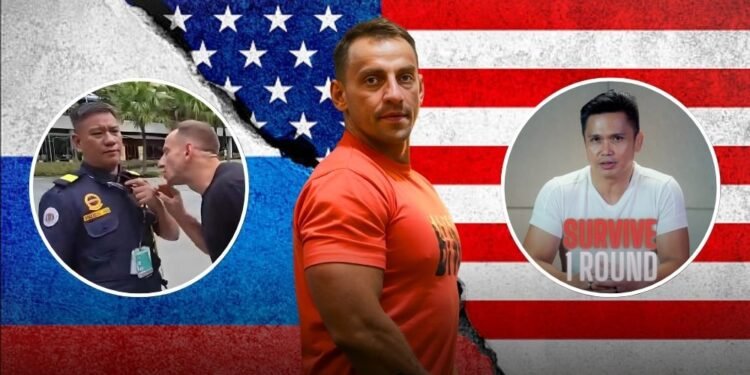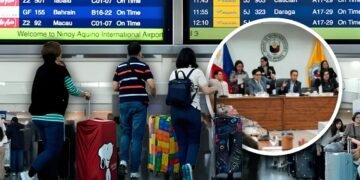A diplomatic standoff made headlines: neither Russia nor the United States would accept the deportation of a detained vlogger, Vitaly Zdorovetskiy, leaving him to face justice in the Philippines.
This unprecedented rejection by two global powers has turned a legal case into an international spectacle, with the Philippine government standing firm on accountability.
The vlogger, arrested in Bonifacio Global City, Taguig, for a series of public disturbances, now faces trial for three counts of unjust vexation, with a potential 18-month sentence in a Bureau of Jail Management and Penology facility.
The saga, unfolding as trial preparations begin, reveals a deeper narrative about the consequences of reckless behavior in a foreign land. His April arrest followed live streamed stunts in Taguig, where he harassed security guards, attempted to grab a firearm, stole a restaurant fan, and verbally abused an elderly woman.
These acts, meant to fuel his online empire, instead sparked outrage. Philippine authorities, backed by President Ferdinand Marcos Jr.’s condemnation, declared him an “undesirable alien” and persona non grata.
Interior Secretary Jonvic Remulla, unmoved by Zdorovetskiy’s letter pleading mental health issues to drop charges, emphasized, “He will serve his sentence here.”
The diplomatic twist is striking. Russia, where Zdorovetskiy was born, has provided minimal consular support, with unconfirmed online posts claiming the nation has “disowned” him.
The U.S., despite his green card, has also refused to intervene, citing prior legal troubles that complicate re-entry. This leaves the Philippines in a bind: unable to deport him, they’ve detained him at Camp Bagong Diwa, Taguig, as a flight risk.
The trial, set to begin this June, could see him jailed until late 2026, with some reports hinting at additional charges like attempted theft, potentially extending his sentence to 24 years.
Adding to the drama, PGMN anchor and MMA fighter Louie Sangalang challenged Zdorovetskiy to a $5,000 MMA fight, a symbolic call for accountability that resonates with Filipinos fed up with his disrespect.
The challenge remains unanswered. Meanwhile, authorities are pursuing Zdorovetskiy’s Filipino cameraman, signaling a broader crackdown on exploitative content creation.
The Senate is also pushing for stricter cyberlibel laws to deter similar behavior. As Zdorovetskiy awaits trial, his case serves as a cautionary tale: in chasing viral fame, he’s lost the protection of two nations and faces a reckoning in a country that demands respect.
The world watches not for his next stunt, but for the justice a small nation will deliver.












